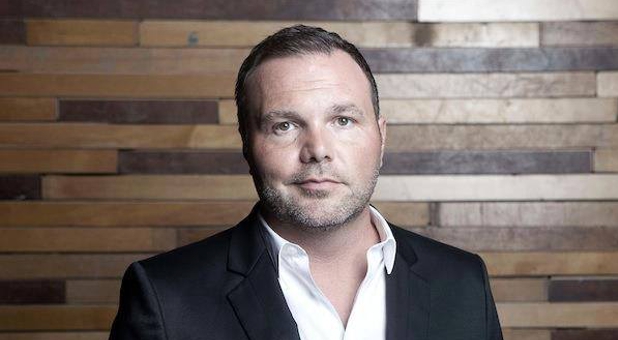Mars Hill announced last week that it would dissolve the multisite network of 13 churches across the Northwest that took root under pastor Mark Driscoll, who stepped down in October after supporters lost confidence in a high-wattage leadership style that was criticized as bullying, hyper-macho and intolerant.
For many megachurches, a pastor can become larger than the church itself—particularly for multisite churches where the pastor’s sermon is the only thing binding disparate congregations connected by little more than a satellite feed. Before his resignation, the name “Mark Driscoll” was more widely known than “Mars Hill.” The dueling brands sometimes clashed along the way; some say Driscoll once told staff “I am the brand.”
Driscoll’s edgy personality built up a congregation of an estimated 14,000 people at 15 locations across five states. Weekly attendance is now reportedly about 7,600. In August, the church saw a budget gap of nearly $650,000 as expenses exceeded revenues.
According to Mars Hill leaders, by the start of 2015 locations within the Mars Hill network will either become independent, self-governing churches, merge with another church or disband completely.
Mars Hill’s existing church properties will either be sold or the loans on the individual properties will be assumed by the newly independent churches. Central staff in Seattle will be laid off as the formal Mars Hill organization dissolves.
Megachurches across the country have faced similar dips in attendance once their popular pastor left, a problem that can plague any church but one that can be exacerbated in a megabrand context. If the CEO of McDonald’s left, for instance, the company would face fewer questions about its survival than The Colbert Report will when its star leaves.
“It’s not uncommon for CEOs to say the first agenda item is to talk about ‘What happens when I’m not here anymore?'” said William Vanderbloemen, coauthor of the recent book Next: Pastoral Succession That Works. “The key is to have an emergency succession plan.”
After former megachurch pastor Rob Bell’s controversial book Love Wins raised debates over whether hell exists, his Grand Rapids, Michigan-based church experienced a loss. Current pastor Kent Dobson said the church lost about 1,000 people during the controversy and now has about 3,000 attendees.
Every megachurch pastor wrestles with challenges of brand and leadership, said Mark DeMoss, who handled some public relations for Mars Hill before Driscoll resigned.
“If the pastor is the best communicator and preacher and pastor in that local context, I think you can make a good case for that’s who ought to be up there,” he said. “The dangers are sometimes in succession.”








































